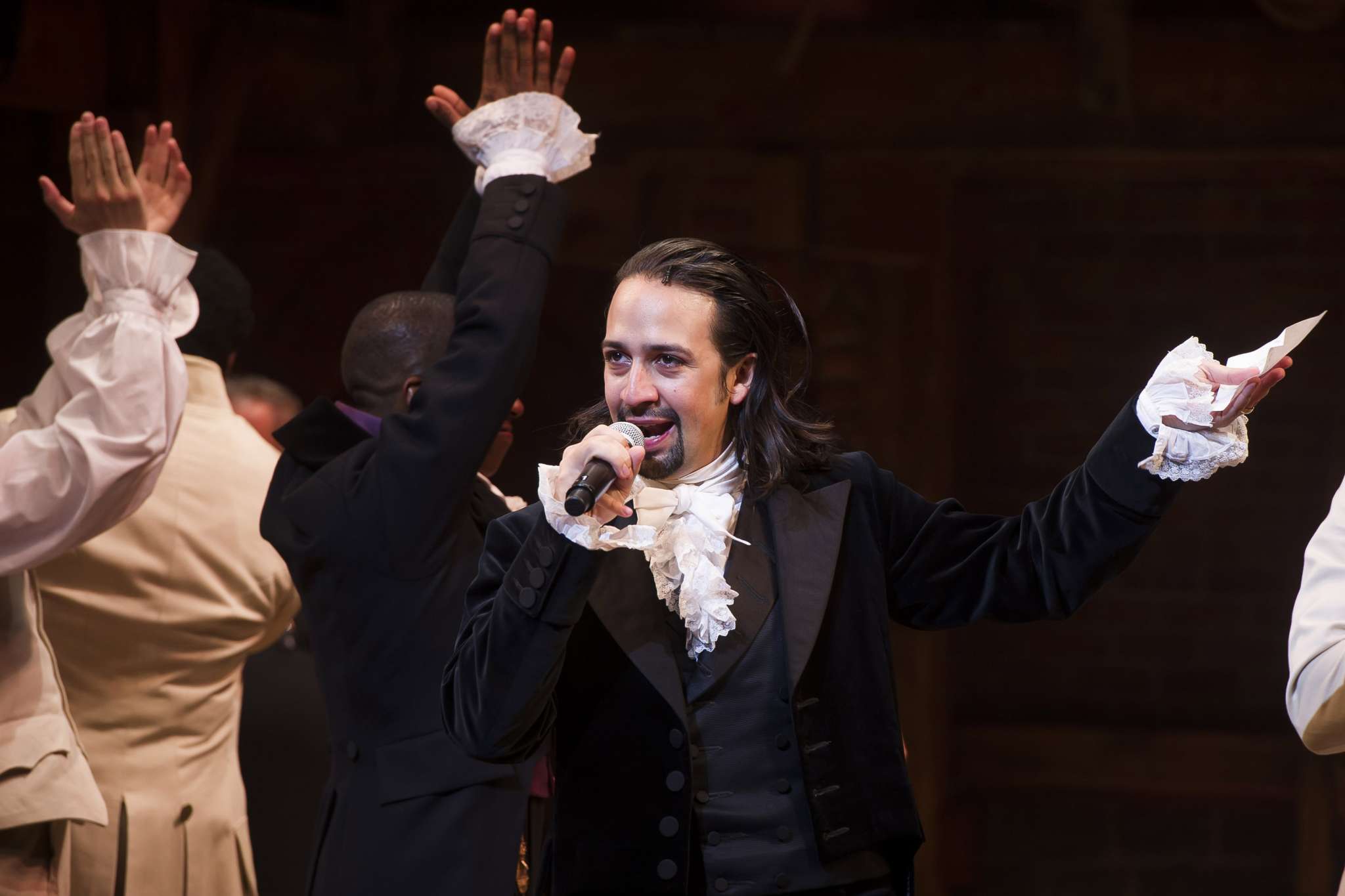Table of Contents
Hamilton Cancels Kennedy Center Engagement
The team responsible for the musical show “Hamilton,” which won the Tony Award, has, in fact, informed that the revival of the production at the Kennedy Center has been cancelled. At first, the Hamilton show was playing in DC from March to April 2026, but the creators had to ditch those plans due to changing circumstances. Artists of this extraordinary production, in their Wednesday statement, said that the Kennedy Center’s recent shifts provoked them to back out. In a public statement, producers attributed the choice to what they see as a redefinition of the arts venue’s purpose under the new administration. This decision stands in stark contrast to the excitement fans once felt at the prospect of seeing the acclaimed show return to the nation’s capital.
In an official release, the producers pointed directly to the Trump administration’s recent takeover of the Kennedy Center as the principal factor compelling them to step back. These developments come after multiple reports of an administrative overhaul at the performing arts institution, which they say includes widespread staff terminations and the cancellation of certain events. The Hamilton team believes this overhaul has drastically undermined the Center’s longstanding role as a champion of nonpartisan cultural exchange. Specifically, they take issue with the White House’s role in reshaping an institution intended to remain above partisan influence. Notably, the canceled engagement would have marked the musical’s third visit to the venue, following an earlier staging in 2018 during President Donald Trump’s first term.
Sacred Institution
According to producer Jeffrey Seller, politics hold great value in fostering debate and disagreements that fuel democracy. However, he explained that the Kennedy Center merits special protection from politicization. “These basic concepts of freedom are at the very heart of Hamilton,” Seller asserted. “However, some institutions are sacred and should be protected from politics. The Kennedy Center is one such institution.” He insisted that, from the start, the venue was designed to be a gathering place for Americans from all walks of life, celebrating the visual and performing arts without deference to changing political winds. The radical changes inflicted by the current administration, Seller argued, deviate from that founding principle.
Further highlighting his concerns, Seller cited a series of high-profile removals within the Kennedy Center’s leadership and governance. Most notably, President Deborah Rutter and Board Chairman David Rubenstein, along with numerous other board members, were ousted from their posts. Seller also pointed out that a range of significant programming was scrapped, including shows that were either hosted or produced by the Center in its former iteration. For him, these actions represent a direct affront to the Center’s mission of uniting communities through art. He lamented the uncertainty now rippling through a cultural hub that used to be lauded for its neutrality and commitment to inviting all Americans to experience meaningful artistic expression.
Partisanship at the Kennedy Center
In Seller’s eyes, the purge of leadership and programs signals an unacceptable shift toward overt political agendas overshadowing artistic vision. He expressed dismay that years of bipartisanship at the Kennedy Center have been effectively dismantled. Although Hamilton has performed at the venue in the past—enjoying successful runs that bridged divides between officials, theatergoers, and the general public alike—the new policies pushed the show’s producers to conclude that a return engagement would compromise their core values. By withdrawing, the team behind Hamilton hopes to make clear their stance that the performing arts thrive best when sheltered from partisan manipulation. While fans are certain to be disappointed, the cancellation demonstrates how firmly creators can stand by their principles, even when it means forgoing a highly anticipated run at an iconic cultural establishment.
According to Hamilton producer Jeffrey Seller, recent leadership changes at the Kennedy Center have caused a concerning shift toward partisanship within the once-neutral arts venue. “These actions bring a new spirit of partisanship to the national treasure that is the Kennedy Center,” he explained. Seller emphasized that the musical’s withdrawal should not be taken as an attack on any specific administration, but rather a response to the policies and atmosphere arising from the recent takeover. “Given these recent actions, our show simply cannot, in good conscience, participate and be a part of this new culture that is being imposed on the Kennedy Center,” he stated.
Business and Politics Combined
Seller acknowledged that political issues were only part of the reason behind pulling Hamilton from the Center’s schedule. He indicated that managerial and contractual changes under the new leadership raised too many risks. “Hamilton is a large and global production, and it would simply be financially and personally devastating to the hundreds of employees of Hamilton if the new leadership of the Kennedy Center suddenly cancelled or re-negotiated our engagement,” he noted. His comments underscored the vulnerability of a production when dealing with unpredictable leadership, underscoring how legal and financial uncertainties put both artistic integrity and livelihoods in jeopardy.
He expressed dismay at what he perceives to be a disregard for earlier contractual promises. “The actions of the new Chairman of the Board in recent weeks demonstrate that contracts and previous agreements simply cannot be trusted,” Seller said. He added that the Kennedy Center’s new ethos goes against the “basic integrity and the rule of law,” both of which he believes are central to American values. From his viewpoint, the sudden reshuffling of staff and renegotiation of deals indicate that prior commitments might be treated as optional, placing large-scale productions in a precarious position.
Ultimately, Seller argued that the Kennedy Center’s transformation contradicts its original mission to serve as a nationally unifying space for the arts. “We cannot presently support an institution,” he concluded, “that has been forced by external forces to betray its mission as a national cultural center that fosters the free expression of art in The United States of America.” This pointed remark highlights what he sees as a troubling politicization of an iconic venue, prompting _Hamilton_ to step away until conditions realign with the principles the musical’s creators hold dear.
Board Resignations
Right after the Kennedy Center was taken over, a large number of high-profile board members resigned, among which Shonda Rhimes and Ben Folds. A sold-out event got cancelled by Issa Rae who was going to appear at the venue. These rapid exits were the signs of the deterioration of the relationship between the institution and the people related to it. The line-up of the big names’ leaving suggested a conflict between the performing arts center’s new leaders and creative individuals who for a long time took it as a space for alternative art forms.
Hamilton was first seen on Broadway in August 2015, during Barack Obama’s second term as President. Lin-Manuel Miranda, who wrote and starred in this unusual adaptation of Alexander Hamilton’s life, took the attention of the theater, and it became an international sensation. Within the unique format of the musical, the show immediately received admiration for its innovative courage in the U.S. history, hip-hop, rap music, and classic musical theater mix. Its diverse cast breathed fresh life into the founding story of the United States, turning Hamilton, Burr, Washington, and Jefferson into vibrant cultural icons.

After collecting an array of Tony Awards and even a Pulitzer Prize, _Hamilton_ expanded well beyond New York. Multiple touring companies and international runs followed, introducing the tale of America’s early leaders to fresh audiences across the globe. Critics praised its ability to traverse language and cultural barriers through energetic lyrics and a universal theme of revolution. With each new production, the musical cemented its status as more than just a fleeting trend, becoming a defining work of 21st-century theater that redefined how people perceive stage shows.
Hamilton Streaming Debut
Eventually, the entire original cast joined forces to film a professional recording of _Hamilton_, adding a new dimension to the phenomenon. Disney+ premiered this filmed version in summer 2020, granting unprecedented access to millions who had never seen the live production. Enthusiasts lauded the streaming release for preserving the show’s core magic, from the precise choreography to the layered emotion woven into each song. Meanwhile, students, families, and fans relished the opportunity to watch a narrative once confined to Broadway from the comfort of their homes.
Lin-Manuel Miranda resurfaced in the Alexander Hamilton role early in 2023, delivering a Saturday Night Live cold open in which he depicted the founding father mid-rap. James Austin Johnson interrupted him as Donald Trump, wryly declaring, “Never say never. I’m in my king era.” The playful segment toyed with the idea that even the anti-monarchical ideals central to America’s founding could be subject to contemporary reinterpretations. Many watchers interpreted the comedy as an example of how the musical continues to shape discussions around American identity and governance.
Despite this lively national conversation, one thing has become clear: Hamilton will not appear at the Kennedy Center anytime soon. By severing the arrangement for its upcoming engagement, the production team signaled alignment with other artists who have pulled away from the venue. With political forces reshaping how the Kennedy Center manages events, the famed musical that once seemed poised to revisit D.C. will instead leave an empty slot, reinforcing the notion that not all creative works can thrive under such newly imposed constraints.




